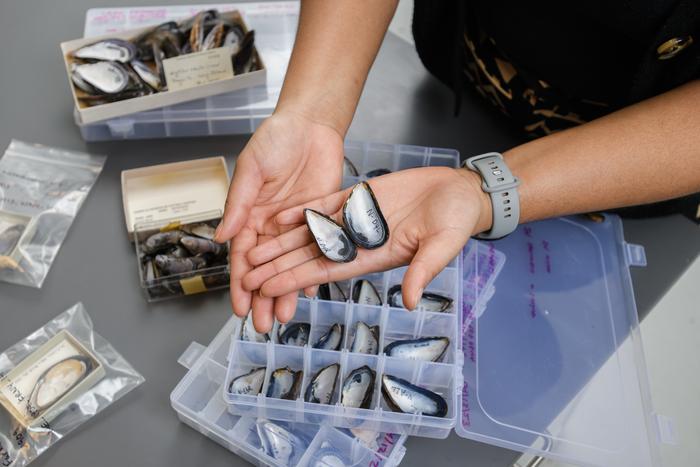Researchers at the American Museum of Natural History have discovered that the porosity, or small-scale holes, in mussel shells along the East Coast of the United States has increased over the last 120 years, potentially due to warming waters. Mussels play a crucial role in marine ecosystems, providing habitats on reefs, filtering water, and protecting coasts during storms. They are also commercially important. “Human-caused environmental changes are threatening the ability of mussels and other mollusks to form their shells, and we need to better understand what risks will come from this in the future,” said Leanne Melbourne, lead author of the study published in PLOS ONE.
Leveraging Museum Collections to Study Environmental Changes
The study utilized the American Museum of Natural History’s extensive bivalve collection, which dates back to the late 1800s, to trace environmental changes in natural settings. “Museum collections are ideal for showing change over long stretches of time. Organisms in natural environments have slow exposure to changing conditions, with more time to adapt and more than one stressor,” said co-author Nathalie Goodkin, a curator in the Museum’s Department of Earth and Planetary Sciences.
Comparing Historic and Modern Mussel Shells
Melbourne focused on shells collected in the early 1900s and the 1960s from five sites along the East Coast, and compared them with modern samples from the same locations. The study analyzed various aspects of the shells, including thickness, surface area, volume, density, and porosity.
Increased Porosity Linked to Warming Waters
The study found that shells collected today are significantly more porous than those collected in the 1960s and at some sites in the early 1900s, suggesting that increases in temperature led to increases in porosity. The North Atlantic has experienced seasonal temperature increases of up to 3 degrees Celsius (5.4 degrees Fahrenheit) since 1902, but the warming has not been uniform, which may account for some of the variations in porosity in historical specimens.
Implications for Mussel Populations and Ecosystems
Porosity is known to affect the structural integrity of mollusk shells, making them weaker and potentially more susceptible to damage. “We know that mussel and mussel reef ecosystem services are dependent on robust shell formation. If they are forming weaker shells, they will break more easily, and we might lose these important organisms,” Melbourne said. However, more research is needed to understand the specific effects of temperature change on these mussel populations and the underlying materials science.
Future Research and Conservation Efforts
The findings of this study highlight the importance of understanding the impact of climate change on marine organisms and ecosystems. Further research is necessary to determine the specific mechanisms by which temperature changes affect mussel shell formation and the potential consequences for mussel populations and the ecosystems they support. Conservation efforts may be needed to protect these vital organisms in the face of ongoing environmental changes.


